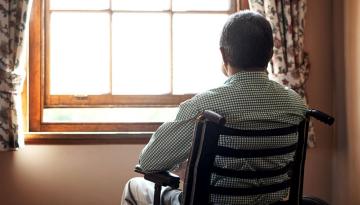Warning: This story contains discussion of suicide.
Contrary to rumours that spread across social media, fewer Kiwis took their own lives during the lockdown and its aftermath than usual.
And it was a similar story across the world, with none of the 21 countries looked at in a new study reporting a rise in suicides as the pandemic hit in early 2020.
Researchers in Australia and New Zealand analysed real-time suicide data from 16 high-income and five upper-middle-income countries, including Australia and New Zealand, Canada, Chile, Italy, Japan, the US, Germany, the UK and Croatia.
They looked at how many suicides were reported by official government sources between April 1 and July 31 in 2020, and how those numbers compared to previous years.
There was no evidence of any lockdown-triggered increase in any of the 21 countries, and 12 of them actually saw suicide numbers go significantly down. New Zealand had 20 percent fewer than expected, based on past trends. Australia fared almost as well.
"Many countries in our study put in place additional mental health supports and financial safety nets, both of which might have buffered any early adverse effects of the pandemic," said Jane Pirkis, director of the Centre for Mental Health at the University of Melbourne, who led the study.
Numerous studies and surveys have found the lockdowns and threat of COVID-19 have negatively impacted mental health, but the researchers say there are a number of additional plausible reasons this might not have resulted in increased suicides, such as:
- financial help, such as the Government's wage subsidy here in New Zealand
- spending more time with family
- a "beneficial collective feeling of 'being in it together'" (eg. the 'team of 5 million')
- a reduction in everyday stresses (eg. commuting)
- finding new ways to connect with others through the internet.
"There is a need to ensure that efforts that might have kept suicide rates down until now are continued, and to remain vigilant as the longer-term mental health and economic consequences of the pandemic unfold," said Dr Pirkis.
"The effect of the pandemic on suicide might vary over time and be different for different groups in the population."
A viral social media post in May last year claimed there had been 61 suicides in just a week, "reaching six a day" thanks to the lockdown. Despite the maths not making sense, the post spread quickly across social media, forcing the Mental Health Foundation and the Chief Coroner to debunk it. The latter said provisional figures showed the suicide rate went down during the lockdown, not up - an outcome confirmed by the new analysis.
When the year-to-June figures were officially released in August, they showed a 5 percent drop on the year before.
The 21 countries looked at in the latest study were all relatively wealthy. The researchers said the same positive outcomes might not apply to lower-income countries, with "concerning signs that the pandemic might be adversely affecting suicide rates in these countries", but it's hard to tell with insufficient data.
The research was published Wednesday in prestigious medical journal The Lancet.
"Pirkis and colleagues' results are reassuring in that there has not been an initial clear increase in suicide deaths, but will need to be followed up across a wider set of countries over the next few years to investigate whether suicide will be one of the health-related aftershocks of the pandemic," public health expert Stella Botchway and mental health researcher Seena Fazel of the University of Oxford said.
Where to find help and support:
- Shine (domestic violence) - 0508 744 633
- Women's Refuge - 0800 733 843 (0800 REFUGE)
- Need to Talk? - Call or text 1737
- What's Up - 0800 WHATS UP (0800 942 8787)
- Lifeline - 0800 543 354 or (09) 5222 999 within Auckland
- Youthline - 0800 376 633, text 234, email talk@youthline.co.nz or online chat
- Samaritans - 0800 726 666
- Depression Helpline - 0800 111 757
- Suicide Crisis Helpline - 0508 828 865 (0508 TAUTOKO)
- Shakti Community Council - 0800 742 584




